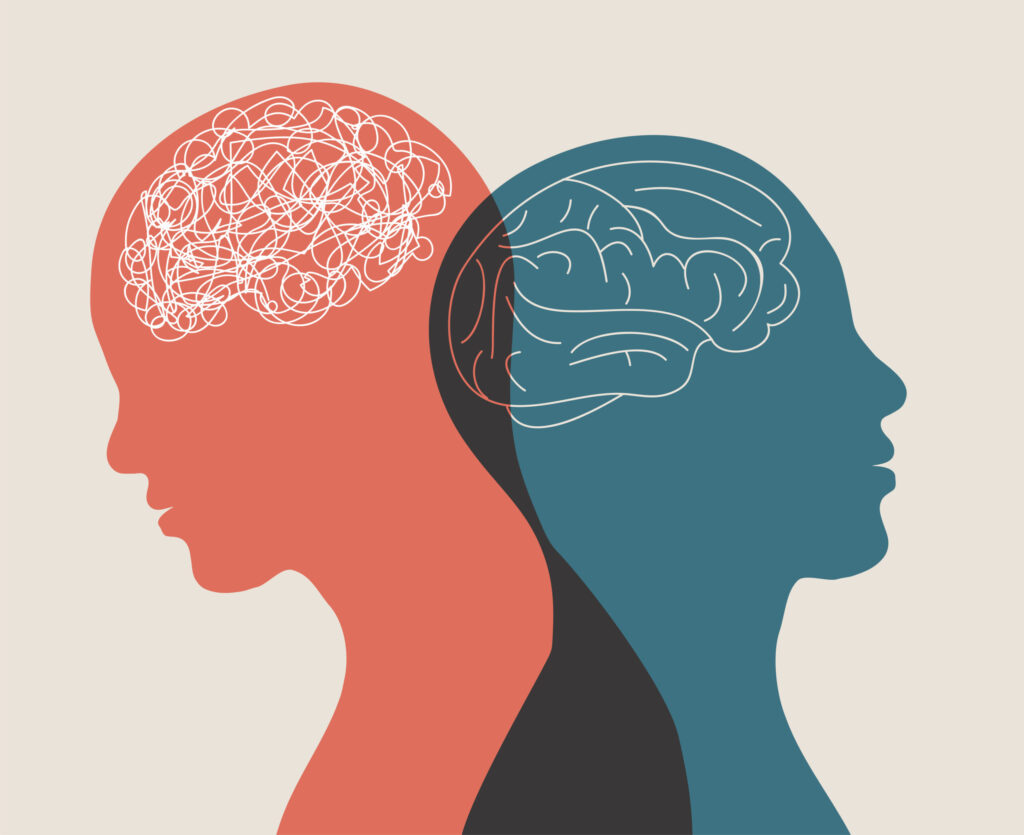
Millions of Americans suffer from bipolar disorder, an illness characterized by extreme highs and lows. If you suspect that you may have it, try keeping a journal of your moods before consulting a mental health provider for further evaluation.
Bipolar disorder can be diagnosed when at least one episode of mania lasting more than seven days and some depressive episodes coexist, though its manifestation can vary between bipolar 1 and 2. As these two diagnoses belong to separate categories, your symptoms might not fall neatly into either of them.
Mood Tests
Not long ago, bipolar disorder wasn't well understood and was frequently misdiagnosed as unipolar depression or even schizophrenia (an extremely serious mental illness characterized by incoherent speech and hallucinations). Now doctors have made great strides in understanding the various moods associated with bipolar 1 and 2, as well as making accurate diagnoses.
People diagnosed with bipolar 1 can experience episodes of severe and debilitating mania that can be life-altering. Symptoms may include racing thoughts, overblown feelings of self-importance or reckless spending or driving behavior. People diagnosed with bipolar 2 often experience milder hypomanic episodes which might leave them feeling euphoric for several days but nonetheless remain energetic and productive.
Persons concerned that they might have bipolar should keep a mood diary to help their doctor make an accurate diagnosis and prescribe effective treatments. Documenting daily feelings will enable their physician to make an accurate assessment and suggest appropriate remedies.
Blood Tests
Doctors may suggest blood tests to identify any factors that might cause mood episodes, including alcohol, OTC drugs, sleep aids, diet pills and thyroid medication.
Researchers are studying a blood biomarker test as a potential way of improving doctors' ability to accurately diagnose bipolar disorder. The test looks for patterns in specific molecules and could help avoid misdiagnosis when symptoms overlap between conditions.
Diagnosing mental health conditions like bipolar disorder often takes multiple visits to a physician and requires time. That is because its symptoms could be due to something else such as major depression or ADHD.
Your doctor will ask about your family history, past mental health history and present symptoms when making a diagnosis. A helpful way to report symptoms is keeping a journal or diary and documenting changes in mood, energy levels, sleeping patterns, thinking abilities or speech abilities - this may help your physician pinpoint potential triggers and monitor how effective treatment plans may be.
Urinary Tests
Bipolar symptoms may be brought on by environmental factors like stress, trauma or family problems. If you notice manic or depressive symptoms that cause severe disturbance or cause you to neglect responsibilities or put others in danger it is important to contact your physician as soon as possible.
Your doctor will ask about how long your symptoms have lasted, whether or not they recur and any associated medical conditions; in addition, he or she may inquire into your family history as well as conduct an assessment for mental health evaluation.
Researchers from Chongqing Medical University in China recently developed an easy way to distinguish bipolar disorder and depression with just a urine test. Utilizing several analytical techniques, they examined urine samples taken from people diagnosed with bipolar disorder vs those who have major depressive disorder - finding that bipolar patients have different levels of these metabolites than MDD sufferers.
Genetic Tests
Bipolar disorder's cause remains unknown, but we know both genetics and experience can play a part. If someone close to you has had depression and/or mania, your risk increases considerably.
Symptoms can range from high energy and excitement, to severe depression, agitation, low self-esteem, irritability, poor concentration and suicidal thoughts. Some individuals also display psychotic symptoms - hallucinations or delusions of seeing or hearing things that don't exist - while still others display hallucinations or delusions that cause disorientation and poor concentration.
Genome wide association studies (GWASs) have revealed some genetic variants to increase your risk of bipolar disorder, providing researchers with valuable tools for diagnosis, genetic counselling and predictive testing. Although researchers remain cautious as their functional consequences remain to be established and some individuals carrying risk variants do not develop the condition themselves - it is also important to remember that other factors like stress or substance abuse could trigger mood episodes as well.





